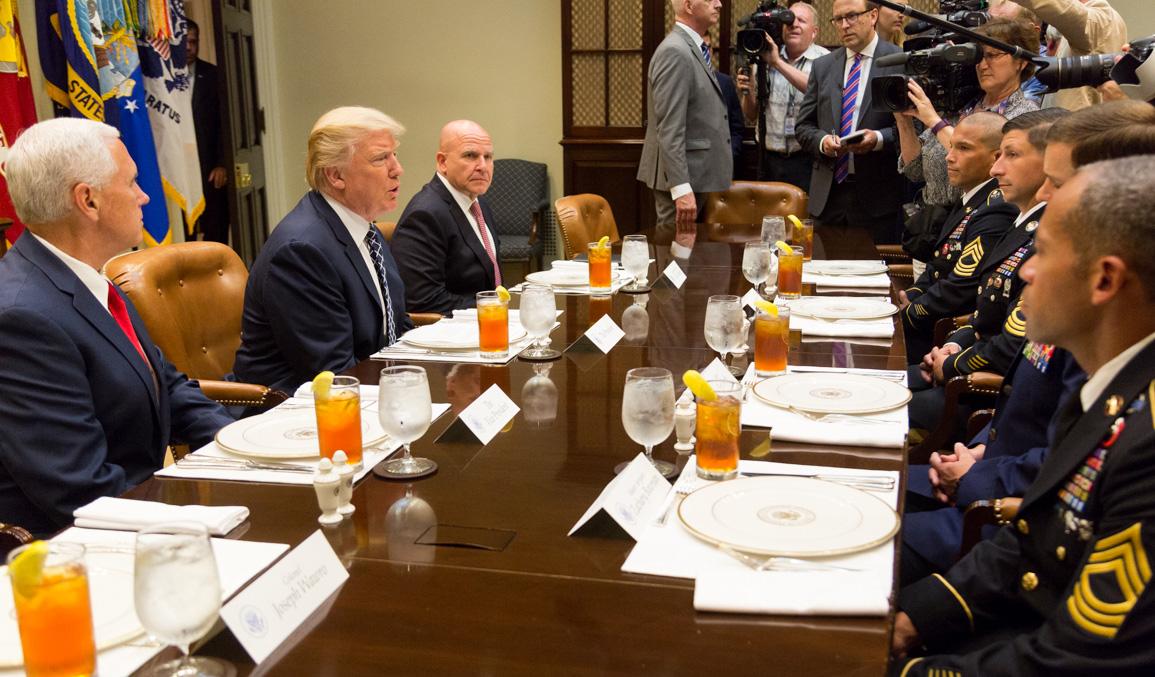
_Jon Niemuth is a freshman economics major at MU. He is an opinions columnist who writes about politics for The Maneater._
Before any serious discussion about North Korea can be had, it is essential to get a few things straight.
Most importantly, under no circumstances is a so-called preventive war in the best interests of the United States, South Korea, Japan or China. Such a struggle would wreak devastation upon the region not seen in nearly seven decades, inflicting an unimaginable human and economic cost.
Secondly, Kim Jong-un, crazy as he may be, is not suicidal, nor an undeterrable Hitlerian mad man. He is eager to acquire nukes to maintain his regime’s security — at least according to Dave Mosher of Business Insider — not to launch sudden and unprovoked attacks on his neighbors.
And finally, it is necessary for the Trump administration to understand these truths, rather than fill in its own “alternative facts” for jingoistic purposes.
Just 15 short years ago, the U.S. slept walked into Iraq touting the same flawed arguments being postulated today. Back then, the likes of George W. Bush, Dick Cheney and Donald Rumsfeld were certain Saddam Hussein had nefarious plans for the future, and the result was a disastrous and protracted conflict still yet to be fully resolved.
Now America is ready to fail again. After Iraq, the U.S. claimed to recognize the holes in the Neoconservatives’ logic, but if recent developments are a sign, we may have already forgotten our lesson.
According to a September Gallup poll, 58 percent of Americans — including 82 percent of Republicans — favor military action against North Korea if the U.S. is unable to accomplish its goals diplomatically, a number that’s shocking given the nightmares that have been Washington’s modern interventions overseas. Further worsening matters, the hawkishness goes right to the top, with National Security Adviser H. R. McMaster and President Trump himself reportedly open to the idea of hitting Pyongyang first.
The reasons both men offer don’t hold up to scrutiny. McMaster is under the impression Kim intends to use his long range ICBMs to blackmail the U.S. into handing over South Korea — ignoring the reality that Seoul has its own capable army and wouldn’t simply surrender without a fight. As for Trump, a fan of flexing American muscle, he’s rumored to be considering a “bloody nose” strike on the dictatorship, despite the likelihood such a move would drastically escalate the situation.
This is, frankly, disturbing, and risks setting off events that could kill millions. Any attack on North Korea would immediately lead to a greater conflict, including an artillery barrage from across the demilitarized zone and possibly an invasion by either side.
This is not a defense of Kim or his predecessors; clearly North Korea is an awful place. But it is a plea to those responsible for American foreign policy to not repeat the wrongs of the past. The outbreak of a new Korean war would be regretted almost immediately, and should the United States be the one to start it, it has the potential to leave a permanent stain on our country’s identity.